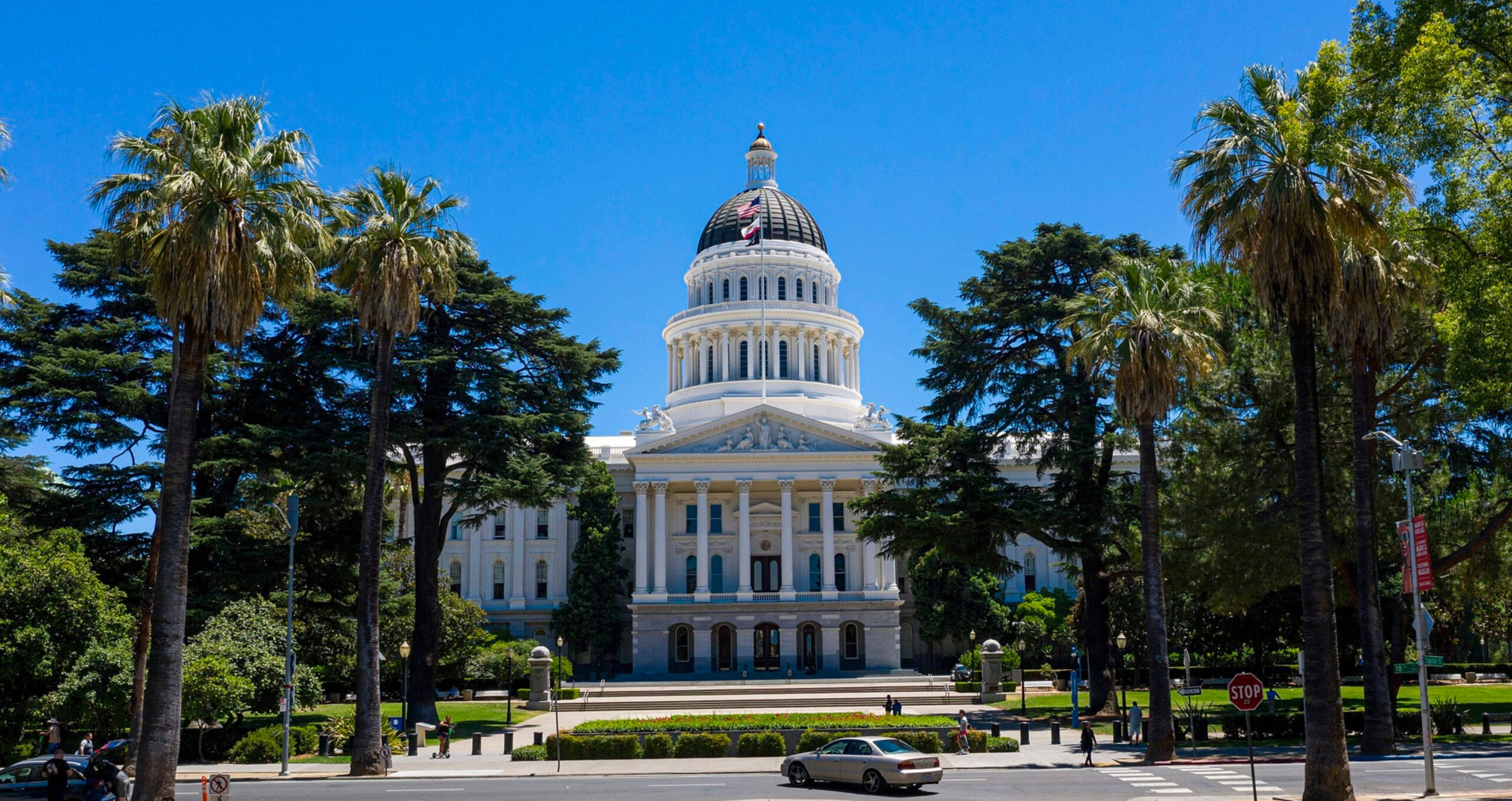
California carbon offsets bill could ‘chill the carbon markets’ beyond state boundaries

California state senator Monique Limón has introduced a bill aimed at regulating the selling and marketing of carbon offsets
An attempt to restrict the sale of carbon offsets in California could have wider ramifications for the voluntary carbon market, threatening legal trouble for participants even beyond the state, carbon market participants are warning.
Carbon offsets are tradable certificates connected to activities that remove or reduce carbon dioxide in the atmosphere, for example, planting trees. Companies and organisations can buy offsets to compensate for their own emissions and exchange these on the voluntary carbon markets.
Carbon markets have, however, been beset by scandals regarding the integrity of some offsets, leading to accusations of greenwashing being levelled against some users.
“The reason the accuracy of offset credits matters so much is that companies can use these credits instead of reducing their own emissions to meet a climate target or to sell carbon neutral products,” says Barbara Haya, director of the Berkeley Carbon Trading Project at the University of California, Berkeley. “When offset credits represent far more emissions reductions than they achieve, they can falsely justify continued emissions.”
Policymakers across the world are beginning to clamp down on how companies use carbon offsets and credits. In February, for example, members of the European Parliament confirmed a ban on companies making green claims based only on their use of carbon offsets.
Since January, companies active in California that make climate-related claims must disclose information on their use of carbon credits, after the state’s Voluntary Carbon Market Disclosures Act was signed into law in October 2023.
On February 6, California state senator Monique Limón introduced Senate Bill 1036 to the California state legislature, despite a similar bill – SB 390, which she also introduced – having been vetoed by California governor Gavin Newsom in October last year.
While Newsom recognised Limón’s intention to improve the levels of transparency surrounding the verification, issuance and sale of offsets, he warned when vetoing SB 390 that “by imposing civil liability for even unintentional mistakes about offset quality, this bill could inadvertently capture well-intentioned sellers and verifiers of voluntary offsets”. He added that it risked “creating significant turmoil in the market for carbon offsets, potentially even beyond California”.
Although some carbon market experts have supported SB 1036 – which is near-identical to SB 390 – others have criticised its wording and warned that it could lead to a rise in speculative litigation against sellers of offsets.
Enforcing accuracy
SB 1036 would make it unlawful for those certifying or selling carbon offsets to do so if they know that the greenhouse gas emission reductions or removals linked to the offset are unlikely to be quantifiable, real or “additional”. Emission reductions or removals are considered additional by the bill if they exceed any reduction or removal required by law, and go beyond cuts to emissions “that would otherwise occur in a conservative business-as-usual scenario”.
Vendors would also have to know that the “durability” of an offset’s greenhouse gas reductions or removals – the length of time over which an offset project operator pledges to maintain these reductions or removals – is less than the “atmospheric lifetime of CO2”, although the bill does not provide a definition for this term. US space agency Nasa estimates that CO2 stays in the atmosphere for between 300 to 1,000 years.
“It’s so prescriptive,” Ana Haurie, chief executive of carbon finance business Respira International, tells Sustainable Views. “Lots of different scientific bodies can’t even agree on what that duration is.”
Vendors would be exempt from the bill’s requirements over durability and atmospheric lifetime, however, if they explicitly market an offset as not being equivalent to the impact of the relevant CO2 emissions.
Not everyone is so critical of the bill, however.
“Over the last two decades, most carbon offset programmes have issued credits with heavily exaggerated climate benefits even though programme administrators and many others involved knew that this was happening,” said Haya at the Berkeley Carbon Trading Project. “This bill, if passed, would help enforce the accuracy of traded offset credits.”
Effect on investment
Some carbon markets participants have, however, criticised the way that the bill has been drafted.
While the terms “carbon offsets” and “carbon credits” are often used interchangeably, they are technically distinct. Carbon offsets can be viewed as a measurement unit to compensate a business for investing in green projects or initiatives that eliminate emissions, according to a Pennsylvania State University briefing, while carbon credits are a measurement unit to cap emissions.
Khaled Diab, communications director at non-profit Carbon Market Watch, told Sustainable Views that SB 1036 is “problematic in places and ambiguous in others”, observing that “one hugely problematic area is the bill’s imprecise use of the term offsetting, which it appears to sometimes equate with carbon credits”.
He added, however, that the bill’s position on additionality and the length of time that carbon is kept out of the atmosphere “chimes with the science”. He argued that for an offset to deliver its claimed climate impact, its effect would need to outlast the lifetime of CO2 in the atmosphere.
Others warned of the bill’s impact on efforts to protect and restore nature. “Because nature-based solutions typically have a stated durability of 100 years or fewer, which is less than standard minimum estimates for the atmospheric lifetime of CO2, this provision would make it illegal to sell any nature-based credit,” said Jennifer Jenkins, chief science officer at carbon credit company Rubicon Carbon.
“Rendering nature-based projects off-limits would stifle investment in all projects intended to protect and restore nature, from afforestation and reforestation on degraded grazing lands to the protection of natural carbon stocks in biodiversity-rich tropical forests,” she told Sustainable Views. “This provision takes off the table a whole slate of very impactful projects that may not meet this durability test.”
In response to these comments, Limón told Sustainable Views in a statement: “We observe industry stakeholders often using the terms ‘carbon credit’ and ‘offset’ interchangeably,” and added: “If there are important distinctions between those terms that should be better reflected in the bill, we invite feedback from industry to harmonise terminology where appropriate.”
Limón disputed Jenkins’ comments. “SB 1036 would not prohibit the sale of nature-based carbon credits, nor would it prohibit the sale of any other carbon credits with relatively limited carbon storage durability,” she said. “Rather, it would only require that industry actors make a disclosure when their carbon credits have a durability that is less than the atmospheric lifetime of CO2.”
Civil penalties
Those that violate the bill would be subject to civil liabilities, rather than criminal penalties. Its current wording does not explicitly limit its application to carbon markets participants based in California, sparking concerns about its potential reach beyond the state, and the legal jeopardy this could create for the market.
The bill “would likely chill the voluntary carbon offset market”, said Michael Mahoney, an environmental and natural resources attorney at law firm Schwabe, Williamson & Wyatt.
“Participants in the voluntary carbon offset market are concerned that they could face civil penalties despite acting in good faith because the bill’s concepts are highly technical and frequently evolving along with the science,” he told Sustainable Views. “The bill does not specify how the activities it regulates must relate to California, which may result in the bill having a chilling effect beyond the boundaries of the state.”
Tommy Ricketts, chief executive and co-founder of carbon ratings agency BeZero Carbon, told Sustainable Views: “Anyone in the world could be taken to court under the Californian scheme for anything pertinent to this market. Bluntly, what gives the Californian local government the right to regulate global carbon market policy?”
Limón said that “existing California law related to unfair competition and false advertising use negligence standards in determining liability”.
“These laws apply broadly to commercial activity conducted in California, so companies doing business wholly outside the state are not affected,” she continued.
Other fears
The bill is set for a hearing in the California State Senate on March 20. Some carbon markets participants are trying to make a case to California politicians to block the bill.
Scobie Mackay, chief executive of carbon project developer Imperative, shared a template letter on LinkedIn encouraging opponents of the bill to submit letters to California’s senate environmental quality committee. Mackay did not confirm to Sustainable Views whether he had authored the letter.
The letter claims the bill would deter companies from participating in carbon markets. Leaving the enforcement of this bill to private civil litigation could lead to “bounty hunter litigation” without contributing to climate progress, it says, claiming that the courts do not have the necessary expertise to apply the bill’s criteria for offsets.
“Civil litigation is likely to result in misguided and conflicting rulings leading to market uncertainty and confusion,” the letter says.
The risk posed by civil penalties “is likely to cause an exodus” of carbon markets participants including developers, standards bodies and registries, it says. It also warns the policy could impact international cooperation under Article 6 of the Paris Agreement, under which countries are able to trade carbon credits in order to meet their climate objectives.
Limón said: “Civil lawsuits have already been filed in relation to allegedly misleading marketing statements involving carbon credits under existing law in California and in other states. To the extent the possibility of litigation for inaccurate marketing statements is such a broad deterrence, those concerns are not the product of SB 1036.”
One carbon markets expert, who did not wish to be named, sought to play down the potential consequences of the bill, highlighting the onset of carbon markets regulation and the creation of industry standards, such as the Integrity Council for the Voluntary Carbon Markets’ core carbon principles, which aim to ensure the integrity of carbon credits.
“This is getting a lot of people very excited about what a huge impact this could have on the market,” the expert said. “If you think you can successfully issue, or market, offsets that you know – or really should have known – are not quantifiable, are not additional or are not real, then you’re smoking something.”
Limón added: “The critical issue here is that many market actors claim that buying and using carbon credits is equivalent to the harms of CO2 pollution.
“To the extent these market actors lack confidence in their ability to characterise the duration over which CO2 pollution remains in the global atmosphere, then they should avoid any representations that suggest their activities produce climate benefits that are comparable to those harms,” she continued.
“If a person cannot support a representation with evidence, then the person should not make the representation to potential customers.”
Similar Articles

IETA challenged over carbon credit use for short-term corporate emissions targets

SBTi staff demand CEO resignation over plans to extend carbon credit use for Scope 3 emissions


